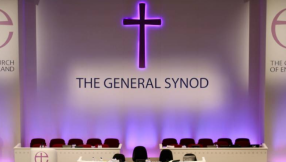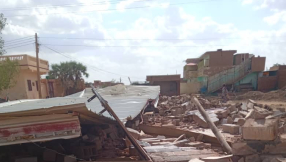Bush gets update on Iraq at desert meeting
Bush arrived in Kuwait on Friday evening after wrapping up his first presidential visit to Israel and the occupied West Bank, emboldened enough to have predicted a peace treaty within a year but with no major breakthroughs for his efforts.
He had dinner with Kuwait's ruler, Sheikh Sabah al-Ahmad al-Sabah, who thanked Bush for his efforts to make progress on issues crucial to the Middle East.
On Saturday, Bush will meet his top officials in Iraq, General David Petraeus and ambassador Ryan Crocker, at Camp Irfjan in Kuwait, where thousands of American troops are based.
The president will also meet Kuwaiti women activists in a show of support for democratisation in their conservative Muslim country, which has allowed female suffrage in recent years.
U.S. Secretary of State Condoleezza Rice said on Friday Gulf talks would turn to "the threats that we've seen in the Gulf, the problem of extremism, whether it be extremism from al Qaeda, Sunni extremism, or whether it be Iran and its tentacles, like Hezbollah and the part of Hamas that Iran supports".
Gulf states have been battling al Qaeda and are concerned about crises in Lebanon and Iraq, as well as the standoff over Iran's nuclear programme.
Kuwaiti media said the emir and other officials would tell Bush of their concerns that a U.S. strike on nearby Iran would destabilise the Gulf, which is crucial to world oil supplies.
Bush is likely to hear similar messages from other Gulf Arab leaders who want to curb Iran's nuclear ambitions peacefully.
Kuwait has said it will not allow the United States to use its territory for any strike against Iran.
"The president will make very clear that the United States takes very seriously its commitments to our allies in this region," Rice said aboard Air Force One on the way to Kuwait.
NO "BLINDING FLASH"
Bush left the Holy Land after painting an upbeat picture of talks this week with Israeli Prime Minister Ehud Olmert and Palestinian President Mahmoud Abbas intended to build on a U.S.-hosted peace conference at Annapolis in November.
Challenging sceptics, Bush said on Thursday there would be a signed peace treaty before he left office in January 2009.
While Abbas and Olmert praised Bush's peace bid, neither offered significant concessions to the U.S. leader, who until recently had mostly shunned hands-on Middle East diplomacy.
Bush said he would urge Arab allies to "begin to reach out" to Israel to nurture the peace process. After Kuwait he will visit Bahrain, the United Arab Emirates, Saudi Arabia and Egypt.
"There isn't going to be a blinding flash in any of this, not on this trip, not on the next trip, but this is a process of moving forward," Rice said. "You will see that as the bilateral process continues to move forward the Arabs will do more."
Bush's hopes of rallying Arab opposition to Iran were underscored by a confrontation between U.S. and Iranian vessels in the Strait of Hormuz last weekend. He warned Iran of "serious consequences" if it happened again.
But his task will be made harder by a U.S. intelligence report that concluded Iran had stopped its nuclear arms programme in 2003, contradicting Bush's earlier assertions Tehran was actively pursuing a bomb.













